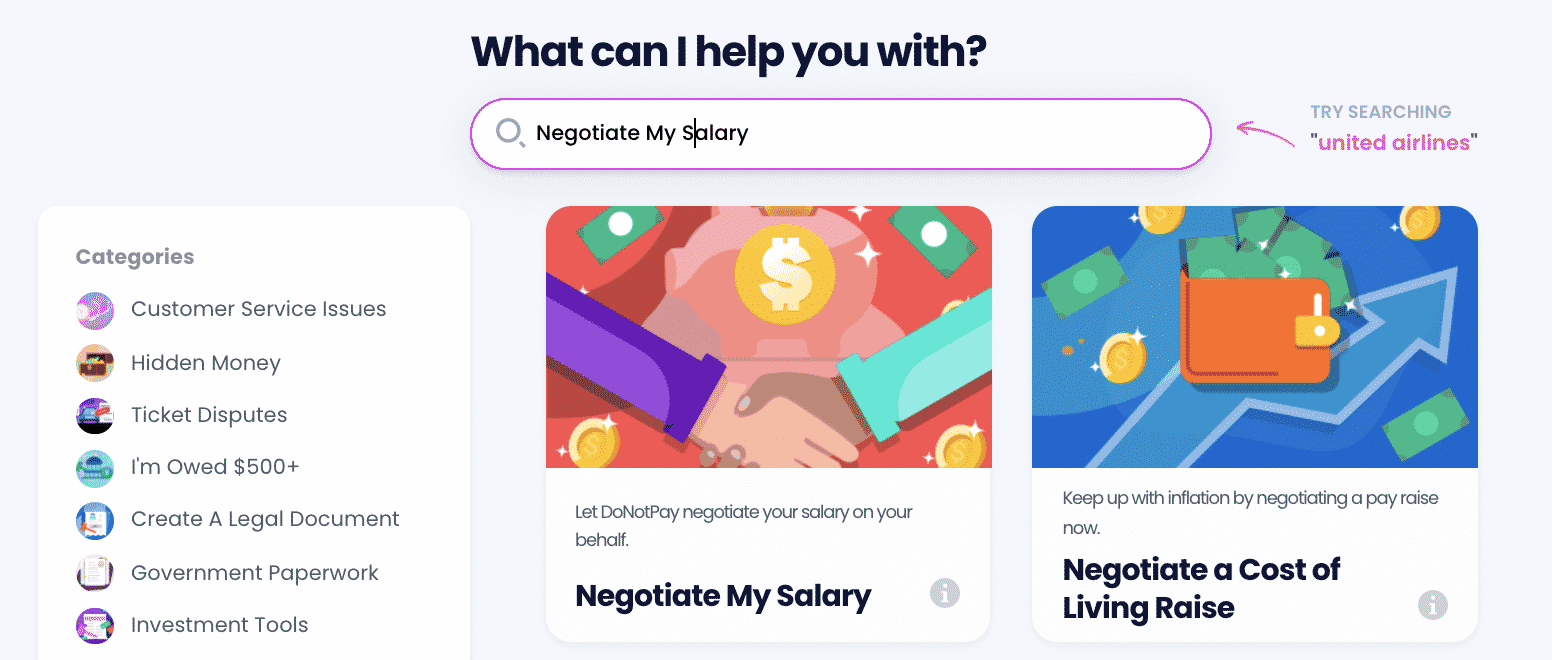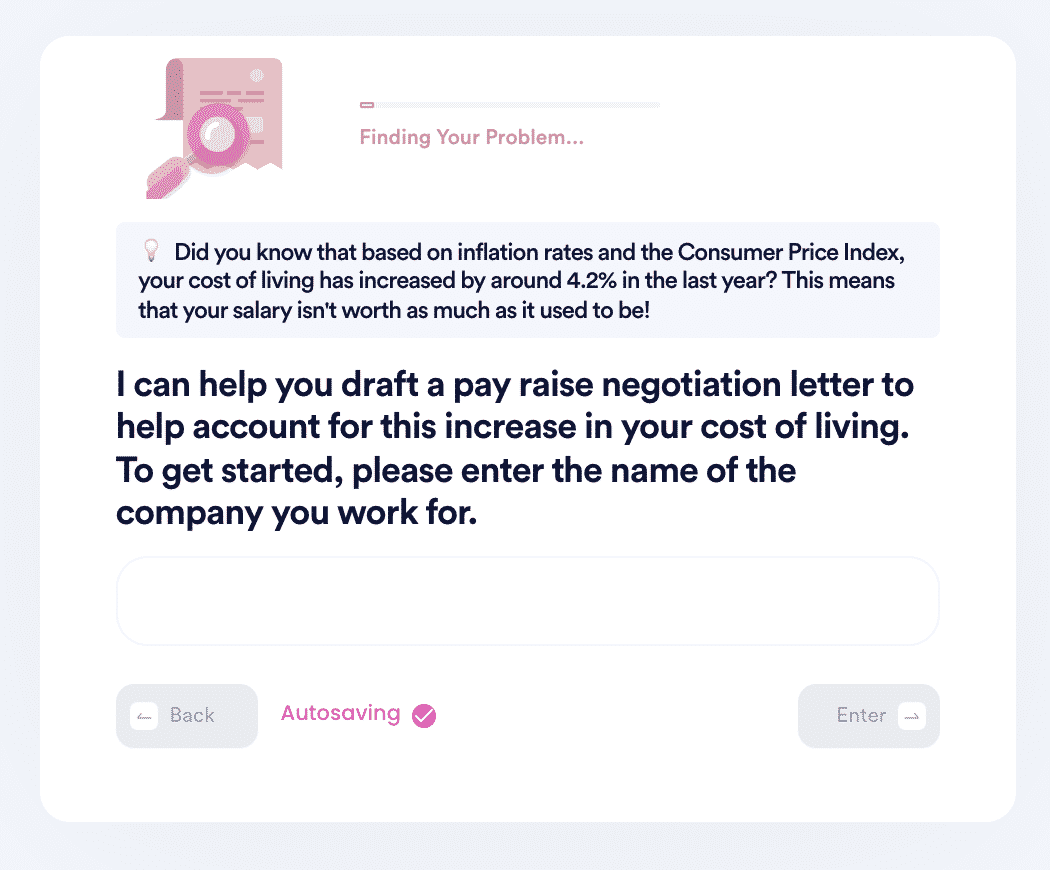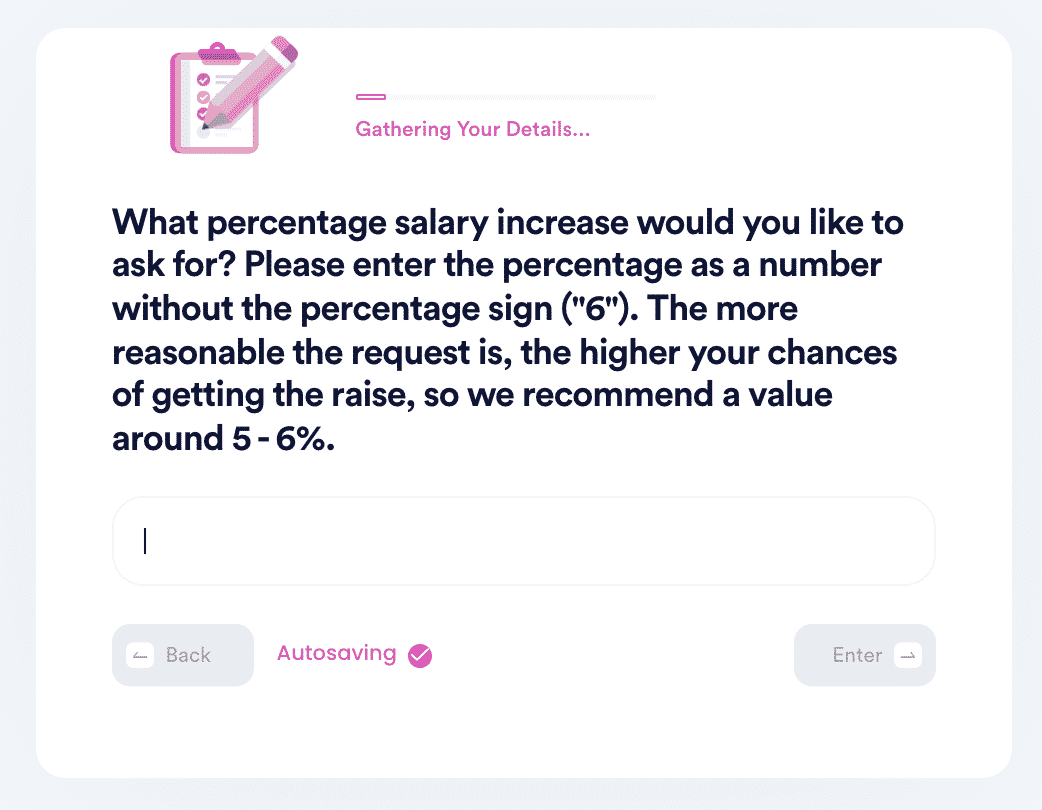What Are the Common Reasons for a Salary Increase
The may seem countless. It can be overwhelming to settle on grounds outside of factors like an increase in the cost of living or the cost of care. However, it is essential to note that most companies give pay raises based on arguments of employee performance. DoNotPay can help you negotiate a salary increase with convincing arguments.
Reasons Why You Should Get a Pay Raise
If you are trying to figure out whether you deserve a salary increase, you need to be able to answer a few questions. Is there a correlation between the company's success and your output or commitment? Has your team or department been more efficient since you began leading them? These questions can help you formulate convincing arguments to present to your boss.
Here are some of the :
| You go above and beyond and do more than your job requires. | This can include helping your coworkers when they are behind on their assignments, taking on additional responsibilities, or exceeding set targets and quotas. Often, work performance forms a strong argument when asking for a raise. |
| You are proactive. | By showing the initiative to take on tasks without being asked, you prove to be a resource to the company. You can do this by requesting more projects to work on, offering your help to coworkers that need it, and even presenting solutions to issues you might notice in the organization to senior staff. |
| You contribute to the company's success. | By increasing client satisfaction, improving the company's efficiency, boosting employee morale, or acquiring financial benefits for the business. Furthermore, you can also do this by enhancing the company's workforce by mentoring another employee while also developing your leadership skills, which companies are always on the lookout for. |
| You are continuously developing new skills. | Whether by taking courses at a university, acquiring certifications, or taking one of the company's professional certification programs, refining and developing skills can qualify you for a raise. |
| You do not require micromanaging. | Companies value employees who consistently put out good quality work and on time. An employee who can consistently deliver what is required of them is reliable and is, therefore, more likely to deserve a raise. |
When Is It an Appropriate Time to Ask For a Raise?
Just as it is essential to pinpoint , it is equally important to ask for the pay raise at the right time. The timing of your request could be the determining factor as to whether you get the pay raise you deserve. Consider the following factors when choosing a time to ask for a pay raise:
- The current financial health of the organization. Your company's financial success will determine its ability to grant a salary increase. Consider, for example, if recent budget cuts have been made or employees have been dismissed. However, it would be best if you had valid reasons why you should get a pay raise other than the company's ability to afford it.
- During your organization's yearly performance review, it is expected that employees who receive a positive review will ask for a salary increase. However, you need to provide your reasons, outside the performance review, as to why you should receive a salary increase.
- After receiving a positive comment on a project whose success was primarily due to your work. This is an excellent time to ask for a salary raise as you show how your contributions positively impact the company's success.
How to Negotiate a Salary Increase
Negotiating a salary increase can be intimidating, especially if it is your first time doing so. And in fact, you may be wondering if you should negotiate a salary increase at all. The following are the from your employer:
- Perform your due diligence. Find out about the market rates to know what is realistic for your specific company, position, field, geography, and functions. Do not rely on what your friends earn; instead, show seriousness by having evidence to back up your salary raise request.
- As discussed previously, find an appropriate time to bring up your salary ask.
- Request, if possible, a physical meeting to negotiate your salary.
- Figure out how much you should ask for in your negotiation. Research suggests that employers are more likely to grant you a salary increase if you provide a specific figure like $61,740 instead of a rounded figure like $61,000.
- Once you have a specific figure you want, negotiate with a realistically higher price. Your employer is likely to negotiate down; hopefully, you will meet in the middle.
- Anticipate objections and practice what you will say. Speak on why you deserve a pay raise with evidence to support your claims. Do not talk about your personal needs, as employers compensate you for your professional contributions to the organization, not your unique needs.
- Apart from salary, you can ask for other benefits your company offers — health insurance, life insurance policies, assistance with student loan repayment, medical and disability coverage, retirement contributions, education, daycare, or vacation days.
Negotiate a Salary Increase With the Help of DoNotPay
Using DoNotPay is the easiest, fastest, and most efficient way to negotiate for a salary increase. Here's how to negotiate your salary using DoNotPay. All you have to do is:
- Search "negotiate my salary" on DoNotPay.

- Enter the name of your company and the industry you work in, so we can find the right wage statistics for your role.

- Answer a series of questions regarding your qualifications and achievements, relocation expenses, and other job offers if applicable.

- Enter the new base salary you would like to request.

And that's it. Once the information is finalized, DoNotPay will generate an official salary negotiation letter that you can then email or present to your employer.
How Else Can DoNotPay Help?
DoNotPay can help you negotiate a salary increase via email or phone. We can even help you figure out how often you should get a raise.
Other than salary negotiations, DoNotPay can help you with different issues like
- Skip the waiting line to speak to customer support
- We can help you fight workplace discrimination
- How you can increase your credit limit
- How you can obtain a clean credit report
- Send Demand Letters To any company or individual in a small claims court
with DoNotPay today to learn more about these and many other features.
 By
By